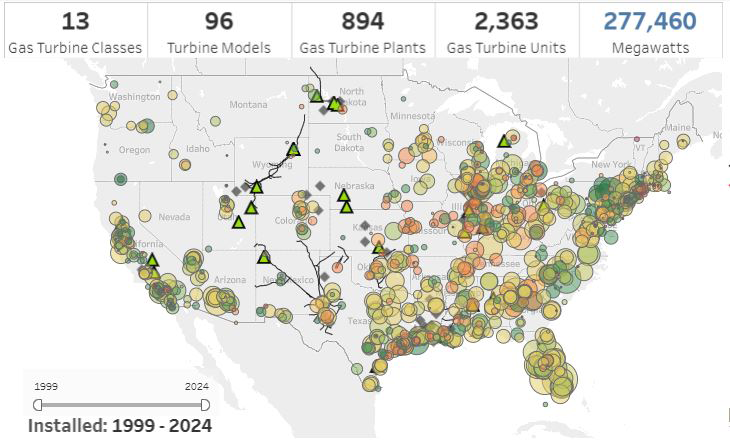Advanced Turbines
Developing advanced turbine technologies in pursuit of power generation with higher efficiency, flexibility, and lower costs
The National Energy Technology Laboratory (NETL) Advanced Turbines Program is developing innovative advanced turbine technologies to enable higher efficiency and fuel flexibility with the goal of producing reliable, affordable, and diverse energy supplies, supporting U.S. energy dominance.
Explore Key Technology Areas
Program Area
USA Gas Turbine Fleet
Legacy power plant units (1998 or earlier) are generally excluded. Emissions data is estimated based on an empirical relation using turbine class or turbine inlet temperature when known. Turbine operational data is gathered from the Energy Information Administration (EIA) monthly reports (EIA-860 and EIA-923) as well as independent public resources.
Additional Resources
NETL implements this effort as part of DOE’s Hydrogen with Carbon Management Program.




